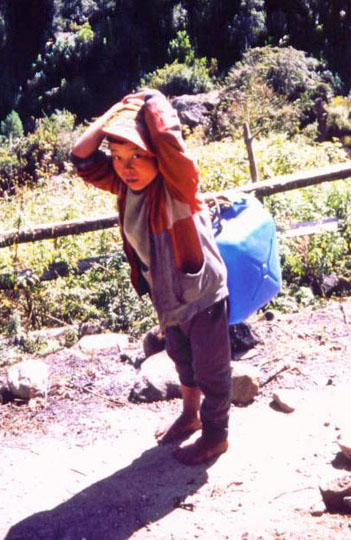
The environment at high altitude is more fragile than at low altitudes. As a result, natural processes are incredibly slow and any damage can be more long lasting.
At home water, fuel, food supply and sewage disposal are rarely a concern for us. At high altitude we need to be responsible. What we do will affect the local people and others who visit the area after us.
Be aware that some hosts are now stretching their precious resources to the limit to provide ‘modern’ facilities to make guests ‘happy’.
Water is scarce:
- Do nothing that will pollute rivers.
- Avoid hot / cold showers – a bowl of water will do.
- Use an earth toilet, not a flush toilet.
Food is hard to grow:
- Buy food where it is plentiful.
- Take care if buying food in remote areas – people may be selling you their winter rations.
Wood is precious:
- Ensure you take all the fuel you need with you – for everyone.
- Actively discourage staff from collecting and burning wood.
- Support tree planting schemes.
Waste is a huge problem:
- Don’t buy bottled water – empty bottles have nowhere to go.
- Carry out everything you carry in. Take packaging off at home.
- Dispose of batteries back home.
- Be aware of what is happening to all your group’s waste and stop bad practices.
- Use deep, well placed pit latrines. Bury deep or spread poo (or carry it), it can take years to break down.
- Plan sanitary wear disposal.
Flora and Fauna are adapted to a fragile life at high altitude:
- Don’t uproot plants.
- Avoid damaging thin soils.
- Protect all wildlife.

